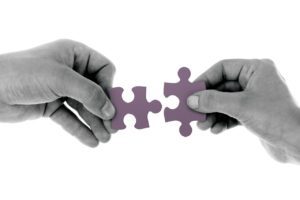When faced with something that needs explaining, it’s very tempting to search for that one cause that is the answer. That one person you can blame or praise — the hero or villain. Things are rarely that simple, particularly when human beings are involved. And more often than not, there are many interconnected elements at play.
Interconnected elements
Most things cannot be accounted for with simplistic answers, even though we might very much like to. When trying to understand the historic performance of a company for example, we have to look at not only its product offering, customer base and the degree of competition it faced, but also the general socioeconomic and regulatory backdrop, along with sector specific trends and geographic peculiarities. Then there’s the role of the management team. And, what about unforeseen tail events (or luck)? Certainly a lot of complexity that is not easy to unravel!

You cannot simply open up an annual report when trying to understand a person the same way you might do with a company.
Your intent
What really matters is your intent. Is your intent to recognises the inherent complexity that might be at play, or is it looking for an easy explanation? It is then a mindset of curiosity that enables the search for a more complete explanation. And, this journey of discovery might leave us with unanswered questions, or gaps in our ability to explain things. But, that is certainly better than incorrectly attributing cause to something, or even worse, blame to someone.
Our world today is more interconnected than it has ever been. This means that things going on in one part of the world influences the rest and vice versa. Now more then ever, we need to draw from the lessons of history, from science and the arts and be willing to look deeper if we are to better understand ourselves and our world.
Find out more about Harsha’s work


Recent Comments